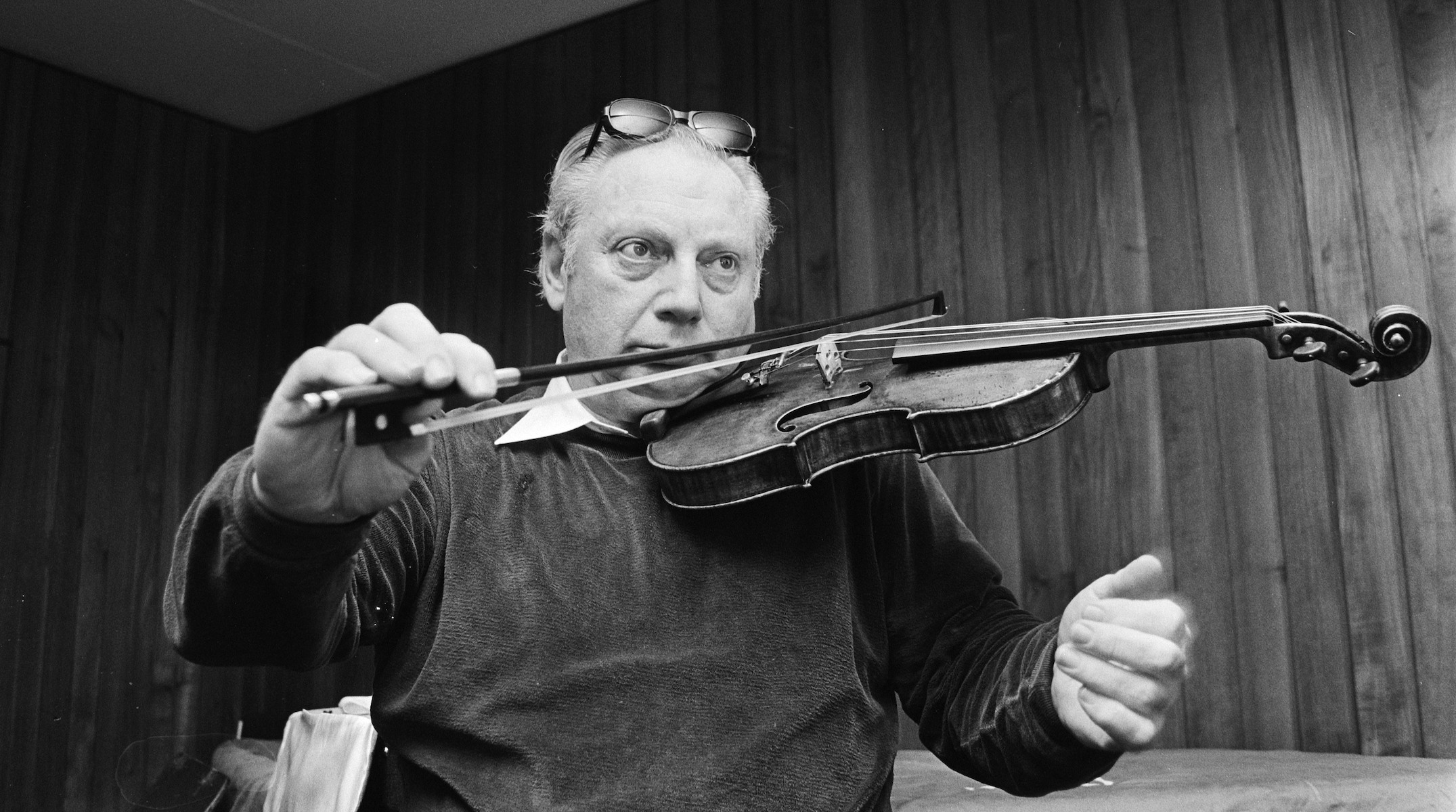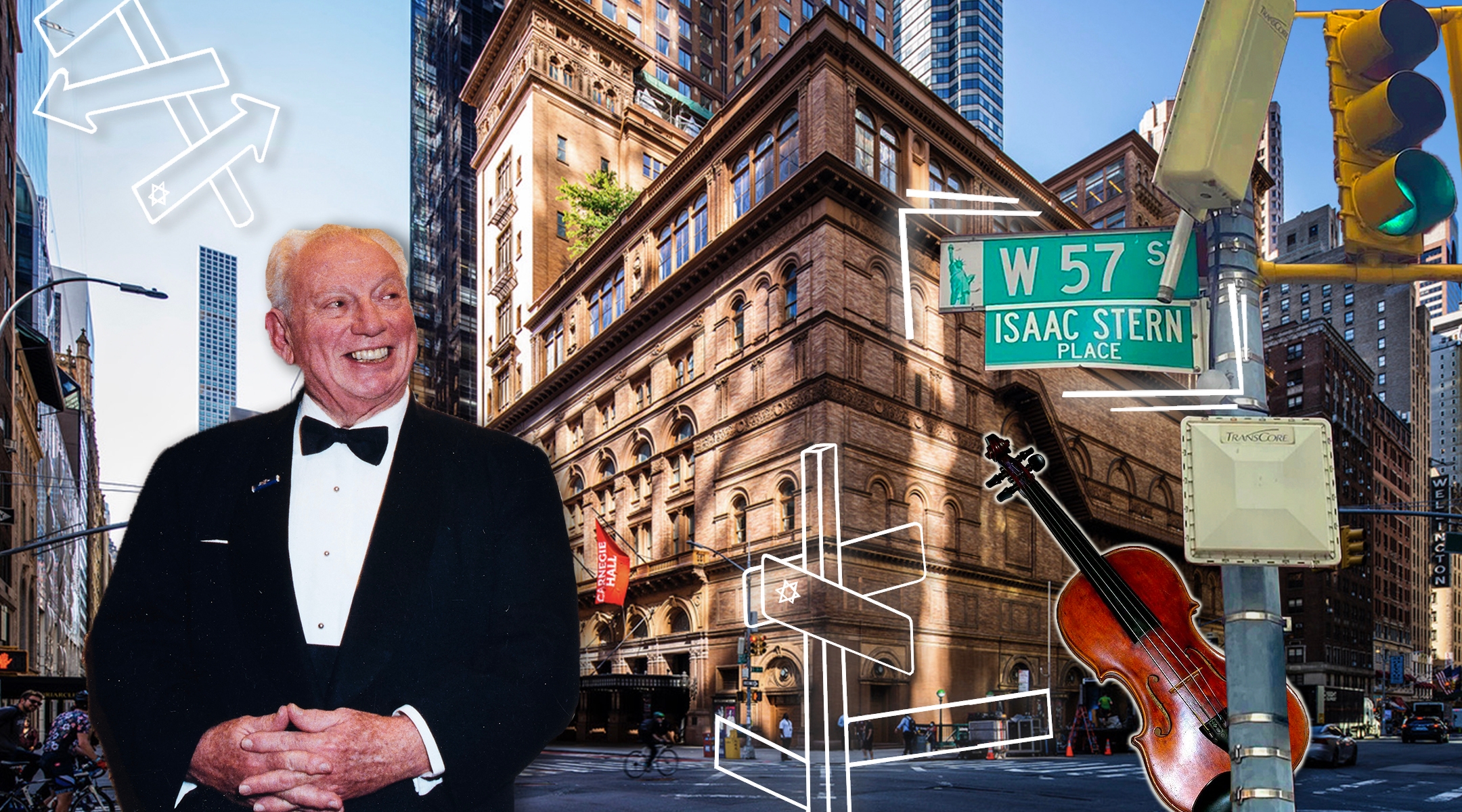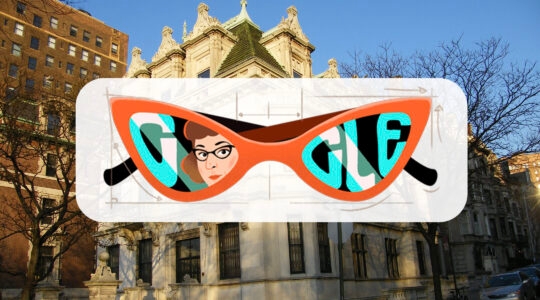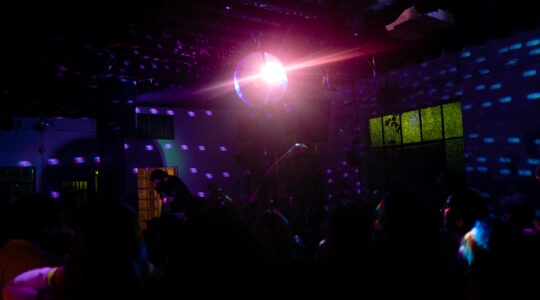(New York Jewish Week) — Violinist Isaac Stern made his Carnegie Hall debut in 1943, but it would hardly be his last performance at the famed concert venue: He performed there more than 200 times between then and his death in 2001 at the age of 81.
Carnegie Hall was “part of his DNA,” his daughter, Rabbi Shira Stern, told the New York Jewish Week.
The opposite is likely true as well: As the person who fought to save the famed concert hall from demolition in the 1950s, and then served as the president of Carnegie Hall Corporation for 41 years, Stern’s “DNA,” if you will, is all over the iconic institution at the corner of Seventh Avenue and 57th Street.
Carnegie Hall, built by industrialist and philanthropist Andrew Carnegie in 1891, isn’t just the punchline of an old joke (“practice, practice, practice”). It’s a bonafide cultural colossus, having hosted performances by musicians as varied and famous as Pyotr Ilyich Tchaikovsky and The Beatles.
And though it seems inconceivable today, by the late 1950s the hall had fallen into disrepair and was set to be demolished. Lincoln Center for the Performing Arts was being built and Carnegie Hall’s primary tenant, the New York Philharmonic, had plans to make Lincoln Center its new home. It declined an offer to buy Carnegie Hall for $4 million.
Stern, however — who, beginning in 1944, had performed with the New York Philharmonic more than 100 times — could not allow Carnegie Hall to simply disappear. He organized the Citizens’ Committee to Save Carnegie Hall, a group of musicians and philanthropists — and his efforts led to legislation that allowed the City of New York to purchase the venue and save it from the wrecking ball.
“The young people of this country are demanding more and more music and producing more and more first-rate musicians,” Stern was quoted as saying in his New York Times obituary. “How dare we take away from them, the music, and the audiences of the future, one of the great music rooms of the world?”
Stern was elected the first president of the Carnegie Hall Corporation, the entity that was formed to operate the venue, at its founding in 1960. It was a positions he held until his death in 2001. As president, Stern pursued a vision that Carnegie Hall could become a major center for music education and training. Under his leadership, the hall underwent major renovations in 1986 and celebrated its centennial in 1991, according to the Carnegie Hall’s Rose Archives.
Additionally, under Stern’s leadership, Carnegie Hall began to establish itself as a global cultural institution, bringing in various international ensembles and branching out into other genres of music besides classical. In 1997, the main hall was named the Isaac Stern Auditorium in his honor.
For all of these reasons, on May 16, 2003 — two years after he died and exactly 43 years after the founding of The Carnegie Hall Corporation — the corner of West 57th Street and Seventh Avenue was renamed “Isaac Stern Place.”
“To me Carnegie Hall is nothing less than an affirmation of the human spirit,” the violinist was quoted as saying in an Associated Press story about the street co-naming.
Stern had undying support for the Hall and for what it could do for others, specifically “opening it up to young musicians so that they would be able to have access to consummate musicians,” Shira Stern said. She told the New York Jewish Week about “the red phone” — a direct line to Carnegie Hall that rang in her father’s study in case of an emergency.
Support the New York Jewish Week
Our nonprofit newsroom depends on readers like you. Make a donation now to support independent Jewish journalism in New York.
“There was a certain idealism in Isaac Stern that had to do with music, with art, with politics, with culture, with not accepting when someone would say this is impossible,” violinist Philip Setzer of the Emerson String Quartet told JTA in 2001.
“He was grounded in music before he was born,” his daughter said.

Isaac Stern in 1979. (Bogaerts, Rob/Anefo; Dutch National Archives)
The family immigrated to San Francisco when Stern was an infant, and at a young age it “was clear that he was gifted” in music, according to his daughter. Stern dropped out of public school after second grade and began a life dedicated to violin. He enrolled at the San Francisco Conservatory at 8, where he studied under Naoum Blinder — who he later regarded as his main influence — and played his first concert at age 15 with the San Francisco Symphony.
In 1949, under impresario Sol Hurok, Stern played 120 concerts over a seven-month tour of the United States, Europe and South America. “By 1950, Mr. Stern had established himself as one of the best young violinists on the concert circuit, and the first American-trained violinist to gain so great a measure of international respect,” having performed with every major orchestra by that point, Stern’s New York Times obituary noted.
Stern was also known for helping to establish young talent, particularly cellist Yo-Yo Ma and the Israeli-born violinists Itzhak Perlman and Pinchas Zuckerman. “He found people who had talent, he nurtured them, he mentored them,” said Shira Stern. “Teaching was his delight.”
“He wasn’t religiously Jewish, but he was extraordinarily spiritual,” said Shira Stern about her father. “[He] realized that his spiritual language wasn’t Hebrew, his spiritual language was music.”
She recalled the time Stern was supposed to play a concert right after former President John F. Kennedy had been assassinated. “He asked that the orchestra not play, and he played 45 minutes to an hour of unaccompanied Bach, because he said that this was the highest form of prayer for him.”
Though he may not have been religious, Stern was a Zionist who regularly performed in Israel. He rushed there during the Yom Kippur War in 1973 in order to play at the bedsides of wounded soldiers and for troops in the Negev. Shira Stern said her father would weave “Hatikva,” Israel’s national anthem, into these performances, because he knew “that it was a comfort to people,” she said.
That same year, Stern founded the Jerusalem Music Center, “which still is vibrant and continues to provide masterclasses and training for young musicians in Israel,” said Shira Stern, adding that her father was the chairman of the America-Israel Cultural Foundation alongside his second wife, Vera.
In 1991, Stern was playing a concert in Jerusalem when a Scud missile attack interrupted his performance. While other musicians left the stage, he donned a gas mask and continued playing.
Shira Stern described her father as an “activist.” Beyond his role in saving Carnegie Hall, Stern was passionate that the U.S. government play a role in funding the arts and held an advisory role in the creation of the National Endowment of the Arts in the 1960s. He organized a musicians’ boycott in 1974 when UNESCO suspended its programs in Israel, and would not perform in Germany because of the Holocaust, although he did urge Israeli artists to perform there in order to establish an artistic presence.
“He would have been 103 this year and people are still talking about what he has done for them,” said Shira Stern. In addition to the musically inclined rabbi, both of Stern’s sons, Michael and David, are composers, helping to realize their father’s long held dream. “He just wanted to make sure that there was a solid next generation of musicians and music lovers,” she said.
Support the New York Jewish Week
Our nonprofit newsroom depends on readers like you. Make a donation now to support independent Jewish journalism in New York.




